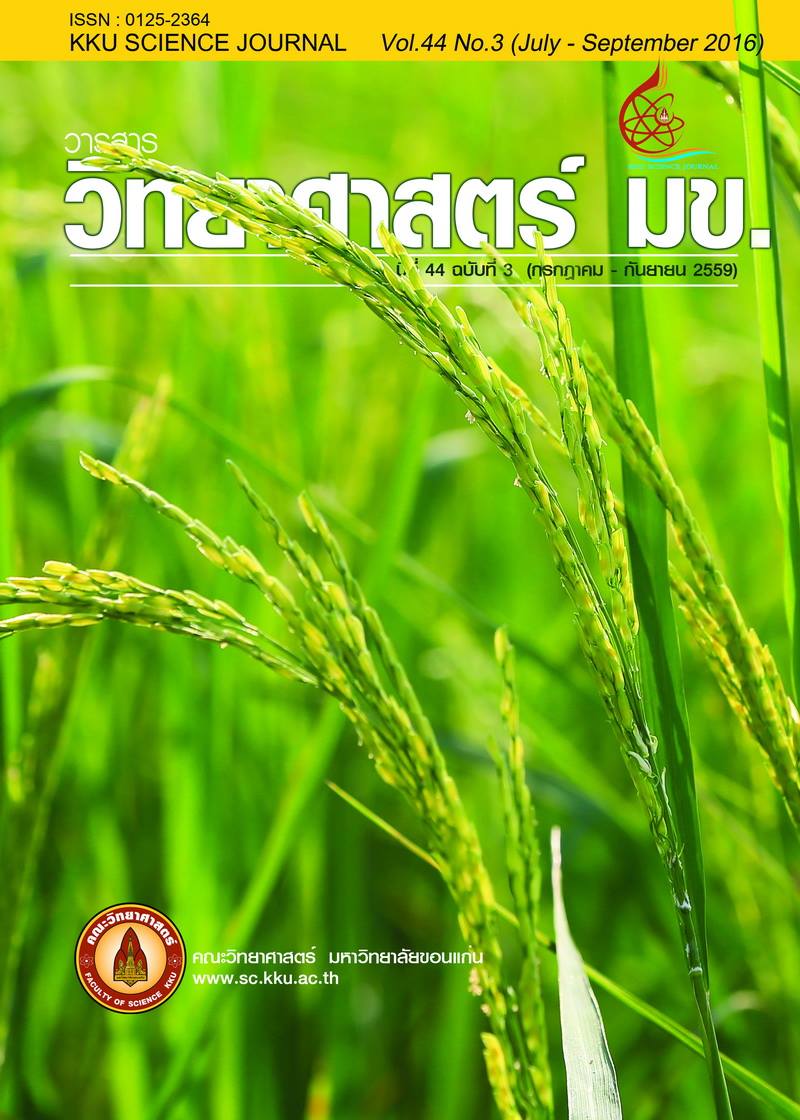Phage Isolations from Nature and the Environment for Prophylaxis and Treatment of Escherichia coli Infection (Colibacillosis) in Broiler Chickens
Main Article Content
Abstract
The objectives of this study were to isolate and test efficacy of phage for prophylaxis and treatment of E.coli causing collibacillosis in broiler chickens. Fifty chickens were divided into 5 groups; the 1st group was a control, given neither organisms nor phage, 2nd group was daily spraying phage for 3 consecutive days without E. coli, 3rd group was once spraying 105 cfu/ml of E. coli with following 1010 pfu/ml phage for 3 consecutive days, 4th group was spraying E. coli after that administered norfloxacin within 2 hours at a dose of 10 mg/kg for 3 consecutive days, 5th group was given only E. coli by aerosol spray. The results in this study showed that the morbidity and mortality rates were low both control (1st group) and spray with phage (2nd group), 20%, 20% and 10%; respectively. The birds exposed aerosol spray with only E. coli as 5th group were high morbidity and mortality rates with 70% and 70%. However, the chickens were administered with either phage plus E. coli (3rd group) or norfloxacin plus E. coli (5th group) were low morbidity and mortality, the same as control group, 30%, 10% and 30% and 20%; respectively. This study concluded that phage was no toxic in the broilerchickens. Phages had provided comparable advantages with norfloxacin for treatment of E. coli infection. This phage demonstrated highly significant decreasing pathogenic E. coli with 44.44%. Morbidity and mortality rates of 3rd group and 4th group had no significant (p ≥ 0.05).
Article Details

This work is licensed under a Creative Commons Attribution-NonCommercial-NoDerivatives 4.0 International License.


